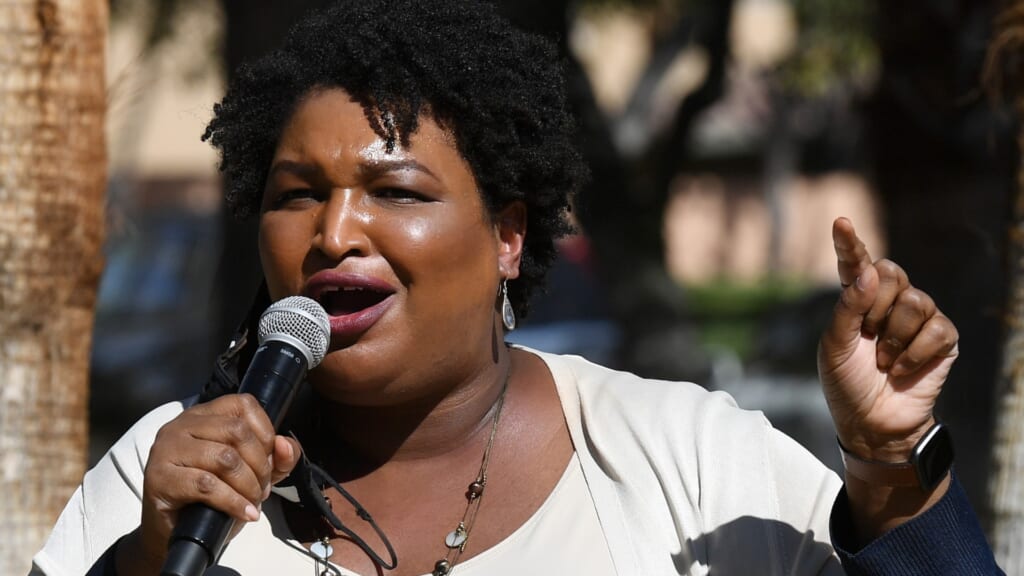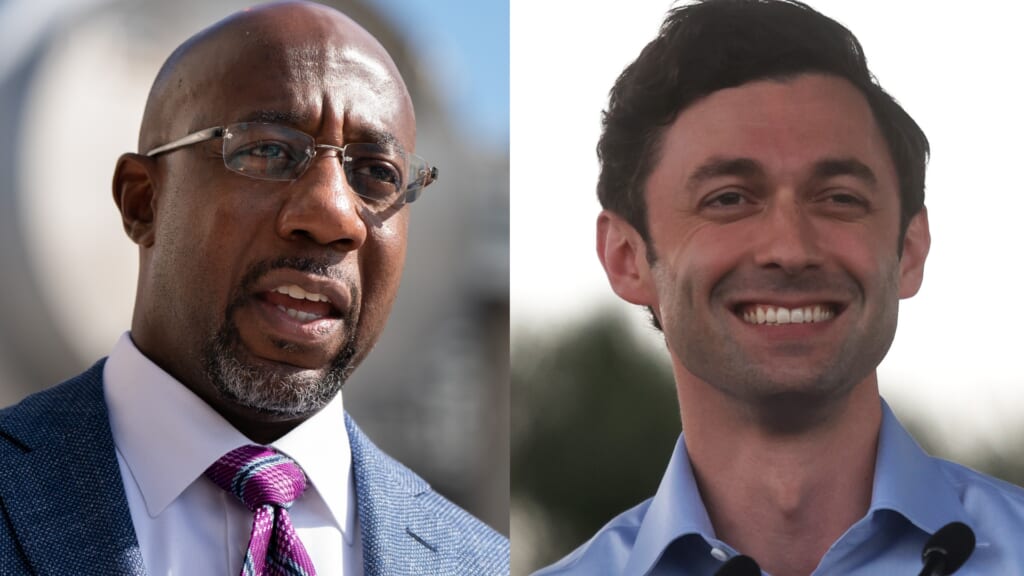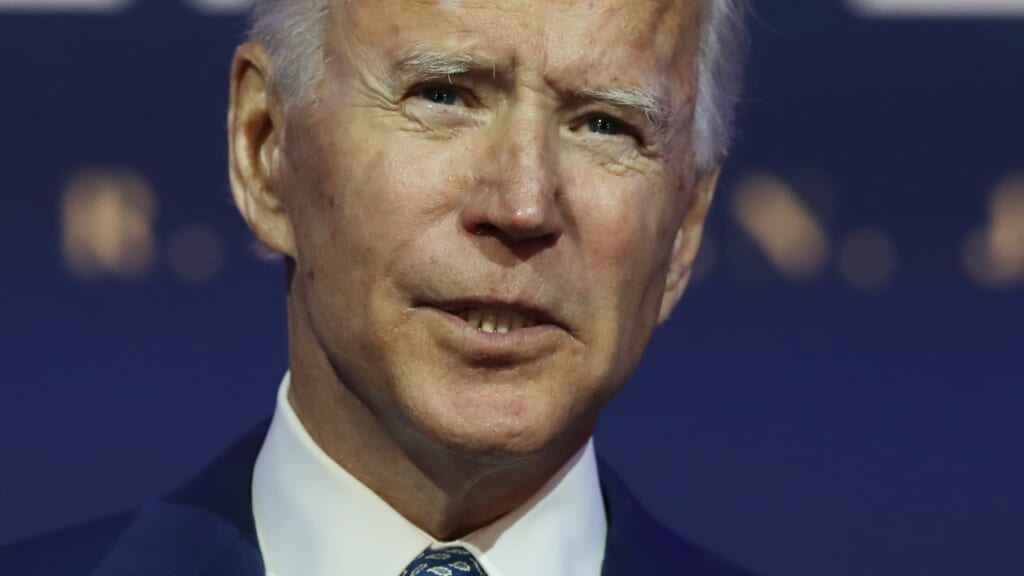Stacey Abrams breaks down path to Dem victory in Senate run-offs in Georgia
Abrams urges the importance of reminding the Black Americans to vote over the holiday season as the Jan. 5 runoffs draw near
With the presidential election decided and Joe Biden and Kamala Harris elected the next president and vice president of the United States, the focus now shifts to the Senate run-offs taking place in January.
TheGrio’s weekly election coverage livestream transformed from Vote For Your Life into One America. With theGrio’s VP of Digital Content Natasha S. Alford continuing her post as host, she brings in Stacey Abrams to join her, owner of theGrio Byron Allen, White House correspondent April Ryan and author Marc Lamont Hill, to help keep the Black voters’ eyes on the prize for the Senate run-offs in Georgia.
READ MORE: Stacey Abrams widely applauded for helping drive Biden’s gains in Georgia
To many, Stacey Abrams, a former Georgia House of Representative and gubernatorial candidate, was instrumental in Biden winning the electoral votes in Georgia, thanks to her efforts as founder of Fair Fight. Her work with Fair Fight helped to raise money and rally Democratic votes in traditionally conservative counties in Georgia.

Although she is the woman of the hour in the Peach State, Abrams says that flipping Georgia from a red state to a blue state was the product of nearly a decade of work, following her appointment to Democratic Leader of Georgia’s House of Representatives in 2011.
“In 2014, I launched the new Georgia Project, which undertook registration of almost half a million Georgians since 2014,” Abrams explained. “In 2016, I helped raise money to do voter turnout, particularly in Cobb and Gwinnett Counties, two of our more conservative counties that have now flipped blue. And all of these parts have been continuing.”
Although Abrams lost an extremely narrow race to become Georgia’s first Black female governor in 2018, her campaign not only raised over $70 million, but brought more attention to the plight of voter suppression in Black and Latino communities. That work ultimately paid dividends when Biden took Georgia in his road toward the White House in 2020.
Read More: Stacey Abrams may run for Georgia governor in 2022, sources say
In January, there will be two Senate run-offs happening in Georgia. Democratic candidate Raphael Warnock will face off against incumbent Republican Senator Kelly Loeffler, and Republican Sen. David Perdue will go up against Democrat Jon Ossoff. With Republicans only one seat away from regaining majority, these run-offs will be crucial for both Black citizens and the Biden Administration.
Abrams listed what was at stake with this important Georgia Senate race — the first important issue being health care.
“We’ve got five million Americans in the south alone who do not have access to basic health care because the governors of these states refuse to expand Medicaid in the midst of the worst pandemic in this century or in modern times,” Abrams said.
“We are watching thousands and thousands of Black people losing their lives, losing their jobs, losing hope. And it’s because we do not have the public health infrastructure. We do not have access for everyone to public to to health care.”
Read More: Trump blocks states from using Medicaid to respond to coronavirus crisis
Another important issue that Abrams wants Black voters to take into consideration is economic recovery. She pointed out that over 90 percent of Black businesses eligible for PPP benefits during the coronavirus pandemic did not receive any. Therefore, it’s imperative to have a Senate that is “willing to think about the needs of our communities.“

“We need to have economic recovery from COVID that sees Black America, that invests in Black America, and that understands that the traditional mechanisms do not work for everyone,” said Abrams. “And so we have to meet the people where they are.”
Abrams added that social justice is a key determining factor in the forthcoming run-off. “We have seen the debates and the protests. We have seen the slow steps forward,” Abrams stated. “If we want to see real justice and a real attention to the issues of police brutality, of criminal justice reform, we have to have senators who can get to work, access to health care, access to jobs and opportunity, access to justice.”
After four years of racial division and social uprising, Abrams does not want any remnants of the Donald Trump presidency dictating the will of the people in government. That means removing power from Trump supporters and enablers, such as Kentucky Senator and Majority Leader Mitch McConnell.
“If Black Americans want progress, if we don’t want to see more of the worst examples of the Trump administration, we must have a Democratic president who is enabled by a Democratic Senate and a Democratic House,” Abrams said.

And with a tight, nearly even Senate, Abrams recognizes Vice President-elect Harris as the Democrats’ ultimate ace-in-the-hole.
“And if we will not be the Senate majority leader, we will know that the tie is broken by the first Black and Asian-American vice president. That is something that means that we can look to our own to help make the decisions.”
READ MORE: Stacey Abrams: Georgia Senate run-offs to be ‘competitive, hard fight’
With the run-offs imminent, Abrams is mapping out some methods for Black voters to get involved in the Jan. 5 runoffs. One way, she says, is to increase fundraising and engagement to combat voter suppression. Abrams said that of the absentee ballots that were rejected in 2018, Black and Latino votes were twice as likely to be rejected.
In addition, Abrams wants to see more remote volunteers with Fair Fight, sending text messages and phone calls to remind the community to vote in the run off over the holiday season.
“So if we can run up the score in absentee balloting, knowing that we face Thanksgiving, Christmas and New Year’s, if we can get those ballots banked, if we can run up the score again, that’s how we increase the margin of victory.”
Have you subscribed to theGrio’s podcast “Dear Culture”? Download our newest episodes now!
TheGrio is now on Apple TV, Amazon Fire, and Roku. Download theGrio today!
More About:Politics









